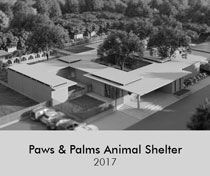
Positive Aging Campus
The project
The project answers the question, how can a service hub or a network of service hubs help reduce the local need for mobility and enhance the urban experience of the city users by creating a Positive Aging Campus. PAC is an idea to connect the existing infrastructure with the needs and demands of the elderly community within the area. This project was conceived as an academic project with my teammates Rishabh Dinesh and Siqi Wang.
Services distribution
Post initial breifing me and team generated a desktop study to identify the service distribution and transportation patterns in the city to identify the area for our intervention.
Demographic distribution
The population at the selected area had the residents split along all age groups equally. This is different when compared with the demographic split of the city, beyond that the area had a larger concentration of senior citizens due to the presence of retirement homes and support centers in the area. I and my teammates decided to focus on a design strategy that would satisfy the senior citizens of the area by creating a campus that would tend to their needs and bring in various services from the city center to this area to support the senior citizens and make their stay there comfortable and also enhance their physical and mental well-being.


interviews of the Residents
To further understand the area we went around the site and interviewed six residents of varying demographic profile to observe their movement pattern according to their daily lifestyle to decide the strategy of implementing the design intervention.
Positive Ageing Campus
The PAC is a way to connect existing infrastructure with the needs and demands of the elderly community within the area. The primary objective of the senior campus is to provide the elderly community with an opportunity to serve the city. Help them make use of their time for learning, discovering new things and improving their skills. The campus also aims to promote a healthier ecosystem by allowing the elder community to decide on the services they want for themselves, also integrate them with the younger generation.


Campus Implementation
All the public buildings are connected and the additional, unused spaces are assigned to the public use. Induvidual spaces (except specialized services) provided in closed spaces become the common spaces for the campus and are shared with everyone. The services available within the campus can be exchanged within the buildings or even be shared to promote a harmonic development.

Pedestrian-centric street
Community Farming in the Park








